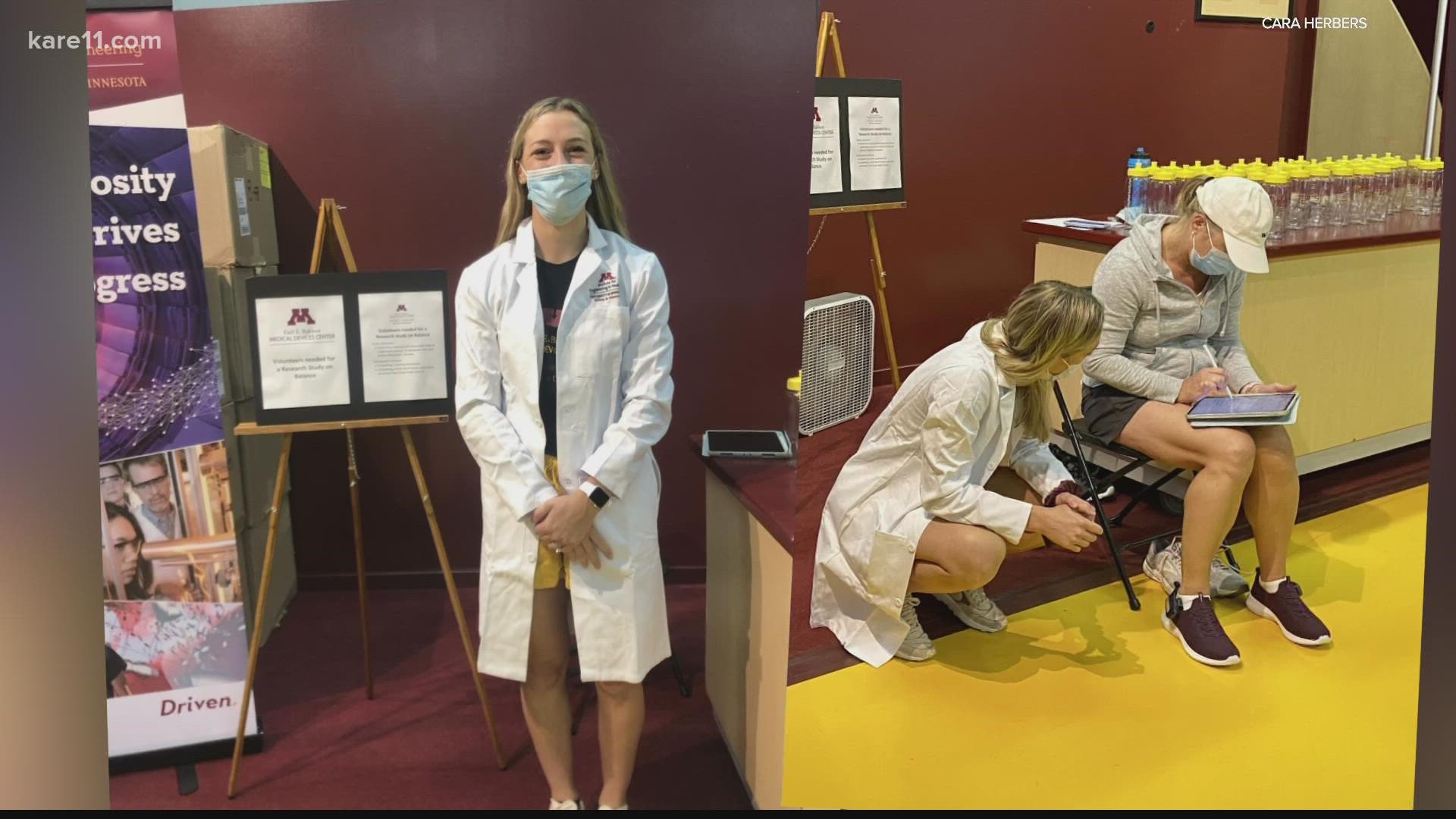MINNEAPOLIS — Cara Herbers' life has always been about balance. Having grown up playing hockey, agility on the ice was second-nature.
"I know people who are new to the sport it just feels totally different to be able to stand on the ice and put your skates on," said Herbers. "But as for me, I started when I was four so it felt natural to me to get on the ice."
Her natural sense of balance led her to leave her hometown in Illinois and attend the University of Minnesota, where she played a successful career on the Gopher Women's Hockey team. During her time on the team, she earned two national championship titles, serving as co-captain her senior year.
"There’s a lot of on-ice success but I essentially just ended up meeting a lot of my best friends as well," she said. "Super thankful for the opportunity."
But after her 2019 graduation, Herbers wasn't done with the University of Minnesota campus. She decided to go on to become a mechanical engineering Ph.D. student, now serving as a lab supervisor at the Bakken Medical Devices Center, where she had the unique opportunity to pick her thesis project.
"I wanted to do something that wasn’t just like a scientific idea, but I wanted to do something that would directly help the community," she said.
Herbers chose a passion project with the goal of helping people with Parkinson's disease achieve better "postural instability," or balance. During her research, she noted that the only way for patients with Parkinson's disease to track their balance metric, to look for signs of progress or regression, was to go into a clinic to have it diagnosed. Given that many patients have mobility issues, she wanted to make the health care monitoring more convenient.
RELATED: St. Cloud's Hendriks setting records
Her familiarity with the athletic world allowed her to utilize wearable technology, intended for athletes, to bring technology to the patients.
Using NURVV Run pressure sensor insoles, she collects information from 16 different pressure points on each foot. That data is sent directly to her phone.
"With these in-shoe pressure sensors the hope is just that people with Parkinson’s can get a pair, put them in their shoes, walk around the house and then have some sort of feedback on their phone or through a different app," said Herbers. "So they can have some sort of understanding through a day-to-day life."
Herbers collected data at the State Fair this summer. Her advisor, Dr. Art Erdman, director of the Bakken Center, said Herbers' research has the potential to be quite a "breakthrough."
"I’m fully confident that she’s going to really make an impact for home health care to diagnose and also keep track of progression or non-progression of Parkinson’s disease," Erdman said.
He added Herbers is a diligent student with a good head on her shoulders.
"Every time that we gave her a challenge, she went way above any expectations. Now she’s the lab supervisor here not too many years after she walked in the front door," he said.
Erdman, a former collegiate athlete, used to coach the University of Minnesota's Men's Rowing team, and he says he has empathy for college athletes like Herbers who are able to balance many things at once.
"She is quite humble," Erdman said. "In fact, sometimes I have to brag on her behalf. Not only is she a great engineer working on a very impactful PhD thesis on Parkinson’s disease, but she also has two national championships on behalf of the university."
Herbers says she looks forward to continuing to collect more data once COVID cases have dropped and she has more access to the population of people living with Parkinson's disease.
"Another thing I really like about this research is I get to go out into the community," she said.
She hopes to publish her research within the next two years.
Watch the latest coverage from the KARE11 Sunrise in our YouTube playlist:

